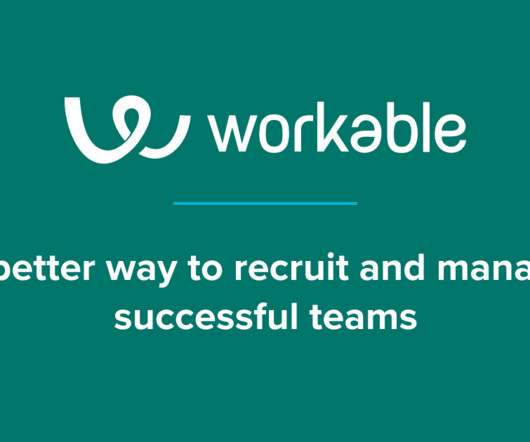Employee lifecycle: it’s not the destination, it’s the journey
Workable
JULY 10, 2023
Recent Gallup research indicates that organizations with a strong understanding of the ELC have 41% lower absenteeism and 24% lower turnover in high-turnover organizations. It’s a continuous cycle that includes 6 critical stages: Attraction, recruitment, onboarding, development, retention, and separation.
















Let's personalize your content